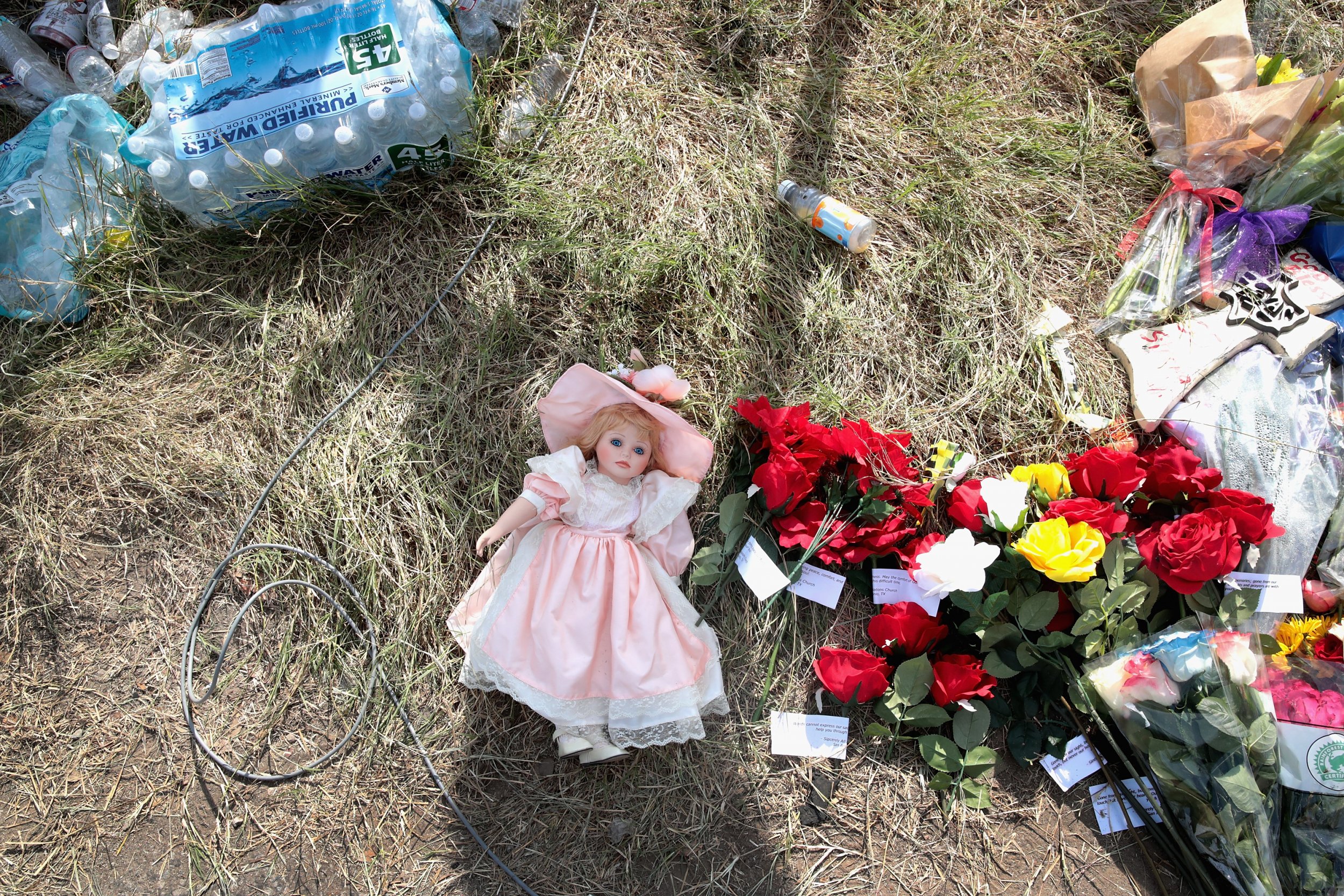
On Sunday November 6, 26-year-old Devin Patrick Kelley shot and killed 26 people at the First Baptist Church in Sutherland Springs Texas, carrying out the most deadly mass shooting in the Lone State's history.
The small mass murder killed a total of 4 percent of the town's population, meaning that nearly all of the town's 600 residents are personally affected by the shooting. Newsweek recently spoke with R Benyamin Cirlin, a clinical psychologist at the Center for Loss and Renewal in New York City who specializes in grief, on how this tragedy may be felt differently in such as small city, as opposed to when shootings occur in larger communities.
How would such such a small city respond to a traumatic event and grieve as opposed to tragedy occurring in a far larger community.
In all honesty, I don't know. My basic hunch is that the social bonds of that community from all that I have read are extremely strong. Everyone knows someone who has been killed. In 911, all New Yorkers were affected, but not every single New Yorker knew someone who died there. However, in this community, there is not going to be anybody who is free from some sort of grief.
Related: "Antifa" Responsible for Sutherland Springs Murders, according to Far-Right media
Do you think that grief may be felt strongly in a small community such as this, with such close ties?
You need to distinguish between grief and trauma. Grief is a reaction you have. It's about separation, losing someone, and all the emotions and feelings you experience in regards to that loss. People in any type of mass tragedy are not only dealing with grief, they are also dealing with trauma.
Trauma really has a whole set of symptoms in which people have to contend with an element of terror. What trauma tends to do is to challenge our assumptions about life. Most of us believe that life is meaningful, that we have control over our lives, and that if we behave, bad things won't happen. Traumatic events challenge these assumptions. Not only do those people there have to deal with the loss of loved ones, but they also have to deal with challenged assumptions.
Related: Texas church shooter Devin Kelley was charged with animal cruelty after beating a dog with his fists
Does the fact that this tragedy happened within a church may affect the community's ability to heal?
From what I've read, it's an extremely religious community and my sense is they are going to have a cognitive framework for how to deal with this, meaning that this is part of God's plan, this is for the best, and that these people are in heaven.
What impact do you believe the large number of young people who died may have on the small community's ability to heal?
Most of us assume that the elderly die before young people. In this instance, that assumption is challenged. There is a great level of pain and poignancy connected to the death of young people and for some people this question of why and 'it's not fair' can be certainly a huge challenge. There will be empty chairs in school, boy scouts and girl scouts. There will be ongoing reminders in almost every milieu in that community.
How would such a tight-knit community begin to find closure and heal?
There is closure, but that's not an applicable word here. This will go on for a really long time. There will be levels of healing, ultimately the healing will come from each individual separately.
That doesn't mean that the community won't come together and actively engage in ritual and support and mutual aid, but ultimately healing is on an individual basis. What will make it hard here is since the whole community is affected. Everyone in the community to some degree will have some wound. That's just an added stress, it's not like there is someone who is not wounded who can offer aid.
Uncommon Knowledge
Newsweek is committed to challenging conventional wisdom and finding connections in the search for common ground.
Newsweek is committed to challenging conventional wisdom and finding connections in the search for common ground.
About the writer
To read how Newsweek uses AI as a newsroom tool, Click here.








